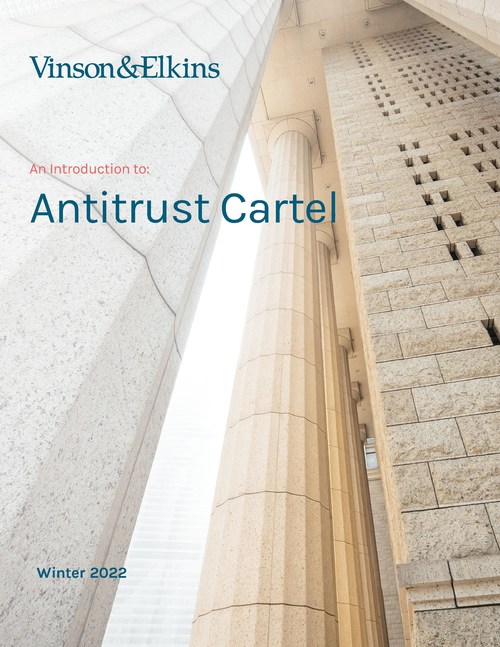Follow the money.
It’s sage advice for analyzing politics as well as business, and in the area of antitrust enforcement, it suggests a crackdown on violations of U.S. anticompetition laws, with the Biden administration’s Department of Justice requesting a 13% increase to its antitrust budget, leading law firm Vinson & Elkins warns in its Antitrust Cartel Primer published today.

“Federal regulators are on the prowl once again, which puts at risk every company operating in a competitive environment,” says Matt Jacobs, co-head of V&E’s white-collar practice and a former federal prosecutor in the Northern District of California.
In addition to the requested budget increase for Justice’s antitrust enforcers, the Senate in November confirmed President Biden’s nomination of Jonathan Kanter to head the unit.
The founder of a boutique antitrust firm, Kanter previously co-chaired the antitrust practice at Paul, Weiss, Rifkin, Wharton and Garrison and worked in the Federal Trade Commission’s Bureau of Competition.
The FTC, another of the nation’s antitrust regulators, has itself signaled a tougher approach to enforcement under Biden-appointed chair Lina Khan.
“With the changes taking place at the DOJ and FTC, and the heightened focus being paid to competition, companies need to be vigilant to ensure that they don’t inadvertently take steps that put them in the crosshairs of a prosecution,” said Craig Seebald, who becomes co-head of V&E’s global litigation department on Jan. 1 and is a leader in its antitrust group. “This primer is designed to educate people about cartel cases and the strategies involved in defending them."
The report’s findings show that:
* From 2011 to 2020, the Justice Department filed an average of 45 cases a year.
* From 1970 to 1999, about 40% of defendants in criminal antitrust cases were sentenced to prison, a figure that climbed to nearly 64% in the past two decades.
* As of this month, the antitrust division has imposed approximately three dozen corporate fines of $100 million or more and 13 fines of $300 million or more.

